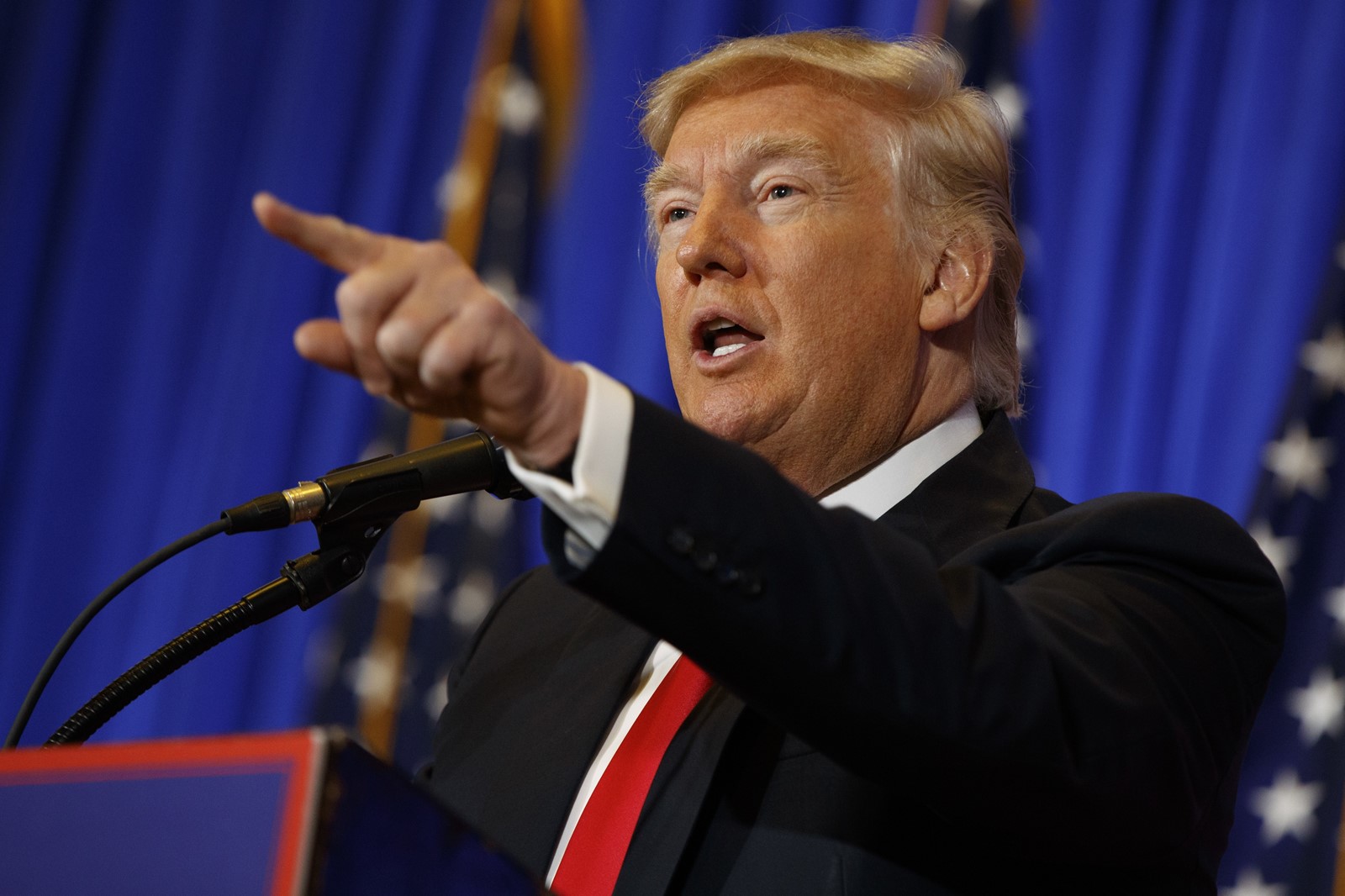Trump transition
Trump plans to issue new orders on ‘Day One'

Even before he begins dismantling the Affordable Care Act and building a wall on the border with Mexico, Trump has promised to immediately roll back executive actions signed by President Barack Obama to shield immigrants from deportation and impose a hiring freeze on the federal government.
Conservative and business groups hope the Republican goes even further by repealing a number of Obama-era orders and agency regulations that affect how much federal contractors must pay employees and whether they must disclose labor law violations.
“I think his priority will be to roll back some of the regulatory executive orders that have just crippled our business expansion,” said Rep. Andy Harris, a Baltimore County Republican.
“Rolling back rules and regulations can take longer,” he added, “but hopefully they will get started quickly.”
Trump will take the oath of office Friday at a time when the nation is deeply divided about its future, and its future president. About one-third of Americans held a favorable view of Trump in a Monmouth University Poll released on Tuesday — the same as in the days leading up to the election — and 20 percent said they are withholding judgment.
The incoming president has dismissed those polls, saying that surveys in battleground states misread the election. He reiterated the point Tuesday, calling the polling “phony.”
It is not uncommon for new presidents to use executive orders on their first day to claim quick victories on campaign promises. Obama, within days of his inauguration, used executive orders to close overseas prisons run by the Central Intelligence Agency and ban so-called enhanced interrogation techniques.
Democrats are girding for some of the changes that Trump can make with the stroke of his pen in part because Obama implemented them through executive actions rather than by moving legislation through Congress.
Throughout the campaign, Trump promised to “cancel every unconstitutional executive action” signed by his predecessor.
“The real fear is that he's going to start turning back the clock on progress starting on Day One,” said Sen. Chris Van Hollen, a Maryland Democrat. “We're on full alert on all of these things.”
Rep. Elijah E. Cummings, a Baltimore Democrat, predicted that Trump would move quickly on policies such as immigration and federal regulations because he is meeting resistance on Capitol Hill over bigger issues like the Affordable Care Act and tax reform.
There is broad support among Republicans to repeal the 2010 health care law, but less consensus about the timing and whether a new law should be put in place to address the 20 million people who now get insurance because of the law.
Trump has promised to unveil a new health care proposal once his nominee to lead the Department of Health and Human Services is confirmed.
“I believe that on his first day of actually operating he will sign quite a few documents,” Cummings said. “I think he's going to spend that first day or two trying to send a message that he's keeping his promises.”
Trump's highest-profile target is likely to be Obama's 2012 Deferred Action for Childhood Arrivals program, which allows immigrants who entered the country before their 16th birthday to apply for work permits. About 740,000 “Dreamers” have been approved under the DACA program, including thousands in Maryland.
Trump's nominee to lead the Department of Homeland Security, retired Marine Corps Gen. John Kelly, indicated last week that the “Dreamers” would not be a priority for deportation, but that has not appeased immigration advocates concerned about the underlying executive action disappearing.
Jessica M. Vaughan, director of policy studies with the Center for Immigration Studies, turned the argument around, suggesting that “Dreamers” were never priorities for enforcement in the first place.
“That is why DACA was unnecessary,” she said, “as well as improper.”
Obama also signed a number of executive orders affecting federal contractors, including setting a $10.10 minimum wage, a guarantee of paid sick leave and protections against discrimination based on sexual orientation.
Another order requires new contractors to disclose any labor law violations. Trump has not indicated his plans for those policies specifically, but he is certain to come under pressure to quickly revoke them — which he may do unilaterally.
“Republicans in Congress and the corporate lobbyists have been complaining about these rules for some time,” said Ross Eisenbrey, vice president of the left-leaning Economic Policy Institute.
Because of its proximity to Washington, Maryland is home to nearly 15,000 prime federal contractors that together employ about 250,000 people, according to state estimates.
Others are hopeful the president will roll back decisions by the National Labor Relations Board, including a controversial decision in 2015 that holds companies more liable for the labor practices of their contractors and franchises.
“Small businesses have really felt the force of the regulation state on them over the last eight years,” said Karen Harned, executive director of the National Federation of Independent Business Small Business Legal Center.
Advocates on both sides of the issues acknowledge that it is not entirely clear what Trump will do after taking the oath of office, or even what he means when he says “first day.” The president-elect indicated over the weekend that “Day One” would be Monday, not Friday.
“I think that there are some things that he will do on Friday. There are executive actions,” Trump spokesman Sean Spicer told reporters on Tuesday. “And then I think on Monday, you're going to see a big flurry of activity.”


 PREVIOUS ARTICLE
PREVIOUS ARTICLE
